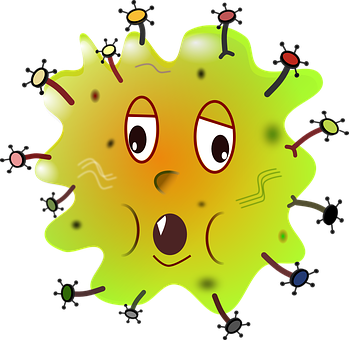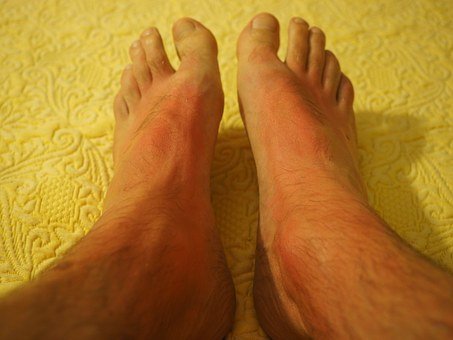Food allergies are a rapidly growing syndrome in recent times. Food allergies cause you a lot of trouble.
Food allergies are the body's immune response to a protein in the food. When they enter the digestive tract, they are transported into the bloodstream, in association with an antibody located on the surface of white blood cells. This combination breaks down white blood cells and releases histamine-mediated chemicals and causes allergies. Food allergies are most likely to occur in people with allergic (allergic dermatitis, allergic rhinitis, bronchial asthma ...).

There are many risk factors for food allergies such as protein and molecules do not change when going into circulation. The immune system in the intestine and immunity of the intestinal mucosa. Some substances increase the permeability of intestinal mucosa such as alcohol, aspirin, virus, parasites, fungus. After eating allergenic food, doing a stressful job can lead to anaphylaxis.

Eat seafood allergy.
Food allergies
In adults, hypersensitive foods are fish (especially sea fish such as puffer fish) and seafood such as shrimp, crabs, oysters, snails, peanuts (peanuts), walnuts chestnut), eggs. In children, it is often allergic to eggs, milk (especially in infants and young children), peanuts, soybeans, wheat, walnuts.
It can be said that all foods can cause allergies, especially foods rich in protein (90% of the cause). Cross-allergy occurs in foods with the same ingredients. As milk, if allergic to cow's milk, may also be allergic to goat milk, sheep, buffalo, beef. If you are allergic to chicken eggs, it can also be allergic to chicken, eggs, etc. Some factors increase your risk of allergy: genetics (if your allergic parent is 20 -30% of children are also likely to have allergies, if both parents are allergic, the rate to 50-60%), some conditions combined such as infection, intestinal mucosal lesions.
The duration of the allergic reaction may be within minutes or hours of eating. Some sensitive cases, just touching or inhaling allergy food is likely to occur. But there are also cases of delayed reactions, which occur after several days with unclear symptoms such as nausea, irritability, rash, vomiting, abdominal pain, diarrhea, and bloody sepsis. It should be monitored to distinguish it from other diseases.
Source: 1
I've seen that most of childs that have food allergies are due most to eating processed foods very often (cookies and those kind of stuff), so, giving to our childs more natural food it's a way to prevent it.
This post has received a 7.33 % upvote from @boomerang.